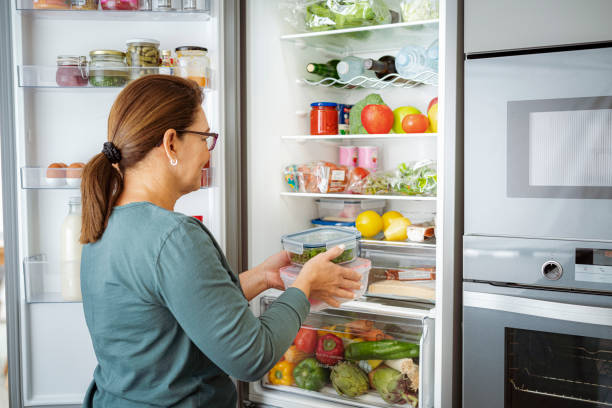Fruitful advice for getting the most from your fridge

After carefully choosing the freshest produce at the market, people face even more choices with their purchase of vegetables, fruit, meat and dairy products that can help prolong freshness, minimize waste and prevent foodborne illnesses.
There are several methods to store and preserve food, such as canning and pickling produce, freezing leftover ingredients, and storing food in the refrigerator.
“Storing perishable items in refrigerated conditions is the first step, but it is necessary to stay aware of how long certain foods have been prepared, exposed to the air, and stored,” said Emily Hilliard, press secretary for the US Department of Health and Human Services.
Planning, buying less
“Refrigerated items are still able to develop mold and dangerous microorganisms like listeria, Salmonella, and E. coli, so consumers must stay alert and take necessary precautions,” she said.
This is especially important during the holiday season, when people buy more and expect meals to last. Planning recipes, buying less and being creative with extras and leftovers can help reduce food waste, said University of California Davis professor Diane Beckles, who studies the quality of fruits and vegetables.
Experts say proper food storage starts before groceries even reach a refrigerator. Buy products before their expiration or “sell by” dates—which are not safety dates but rather direct stores on how long to display their products.
Follow handling instructions and place foods in the refrigerator within two hours of being at room temperature. Other tips include keeping appliances clean by wiping spills, especially from thawing meat. The US Department of Energy also recommends keeping refrigerator temperatures between 1.7 to 3.3 degrees Celsius.
Experts say there isn’t just one right way to properly store many foods. It comes down to understanding temperature and relative humidity when storing produce, said Wyatt Brown, emeritus professor at California Polytechnic State University in San Luis Obispo, who studied postharvest technology and taught for 31 years.
For Beckles, the most important thing is to eat more fruits and vegetables—not worrying so much about how they are stored. “I recommend not storing tomatoes in the fridge, but there are people who feel better doing so,” she said. “It’s not going to taste as good, but if they eat them and get the nutrients, who cares.”
Ethylene gas
Most produce, including fruits, vegetables, leafy greens and herbs, are alive. Experts say refrigerating produce can slow spoilage, if done correctly.
Experts recommend using your fridge’s crisper drawers to separate fruits and vegetables and control humidity. Keep berries dry and wash them just before eating. Refrigerate broccoli, carrots, and green beans, and store leafy greens in plastic or paper bags to prevent wilting.
Some produce, like tomatoes, pears and apples, emit ethylene gas as it spoils causing the surrounding fruits and vegetables to ripen more quickly, so experts say to get rid of rotting food to keep other items fresh.

















